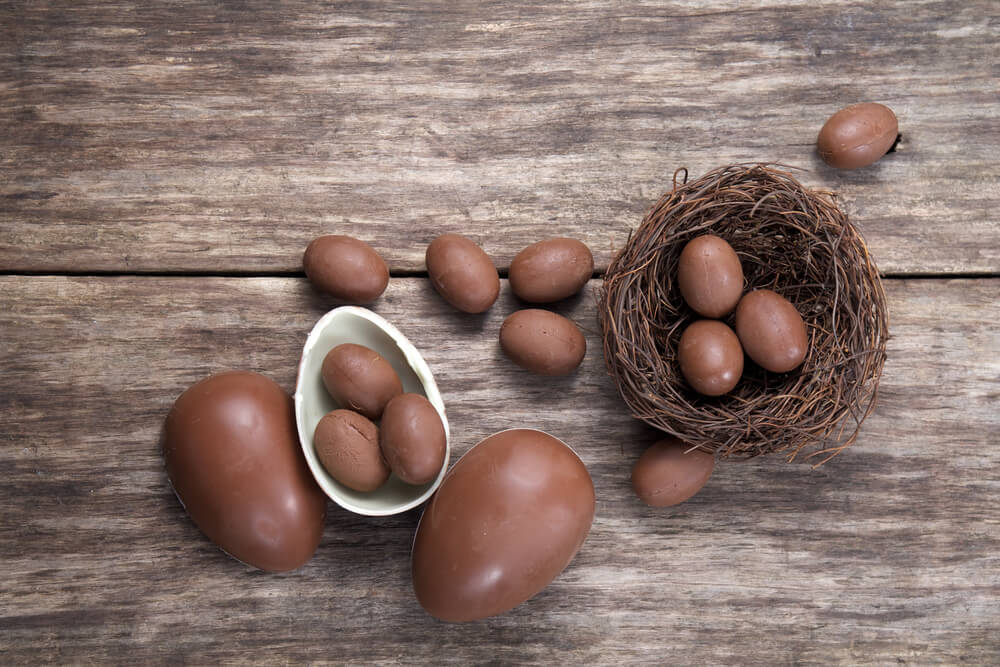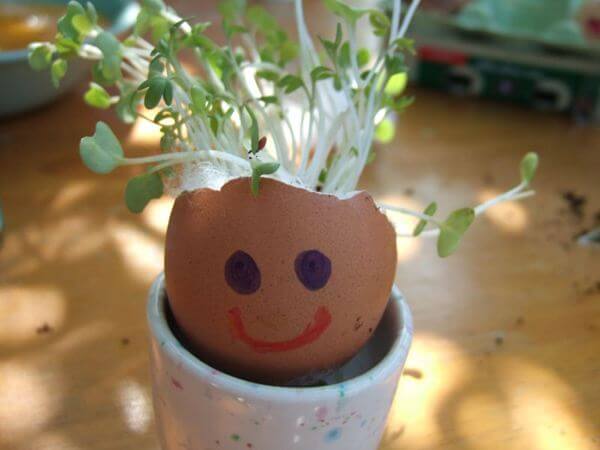5 Delicious Tips For a Sustainable, Climate Friendly Easter
It’s that time of year again, when it’s totally acceptable to eat chocolate from the minute you wake up to the minute you go to bed.
But did you know that more than 8,000 tonnes of waste is generated each year from Easter egg packaging and cards alone? The Daily Planet is here to help out with some top tips, so you can do your bit.
1. Go For “Guilt-Free” Chocolate
Opt for chocolate that is organic, fair trade and without palm oil. This way you’ll know your chocolate isn’t contributing to the deforestation of rainforests or unfair labour conditions. A brand like Divine Chocolate, for example, is 44 per cent owned by its farmers and doesn’t use palm oil.
Depending on in what country you live and where you shop, you may find chocolate certified by a range of organisations including well-known brands such as Fair Trade, UTZ and the Rainforest Alliance.
2. Look For Eggs With Minimal Packaging

Photo: Vetre / Shutterstock.com
Although the aluminium foil that is usually used for chocolate eggs is recyclable, the cardboard boxes are often coated with plastic to give it that shiny look.
If you go for Easter eggs that come with minimal packaging, you avoid a lot of unnecessary plastic and non-recyclable materials.
Go for a brand like Green and Black’s that uses 100% recycled packaging and is even researching a soya based alternative to plastic packaging. You could even go one step further and make your own Easter eggs!
3. Ditch The (Chemical) Dye

Photo: The Kitchn
If you’ve had too much chocolate, there are always real free-range and organic eggs. If you plan on painting them, remember this: nature is full of vibrant, chemical-free colours, so why not ditch the harsh chemicals and go all natural.
The Kitchn has a great guide on how to make vibrant easter eggs using foods like beetroot, onions and cabbage. Also make sure not to let the yolk or whites go to waste. You can blow the eggs and use them in a recipe for dinner.
4. Make a Locally Sourced, In-Season Meal
Check what produce is in-season and head to your local farmers market.
Struggling to find good, local produce? Start your own veggie patch in the back garden or a herb box on the window ledge. By next year you’ll be able to make a meal from your own produce!
5. Get Crafty

Photo: crunchcandy / Flickr.com
Channel your inner creative and organise some arts and crafts with family members and friends this weekend. You could recycle your own paper to create colourful cards, grow tasty cress egg heads or make your own Easter baskets.
Let us know in the comments if you have any more sustainable Easter tips! And don’t forget to subscribe to receive a weekly round-up of the Daily Planet straight to your inbox every Friday.

